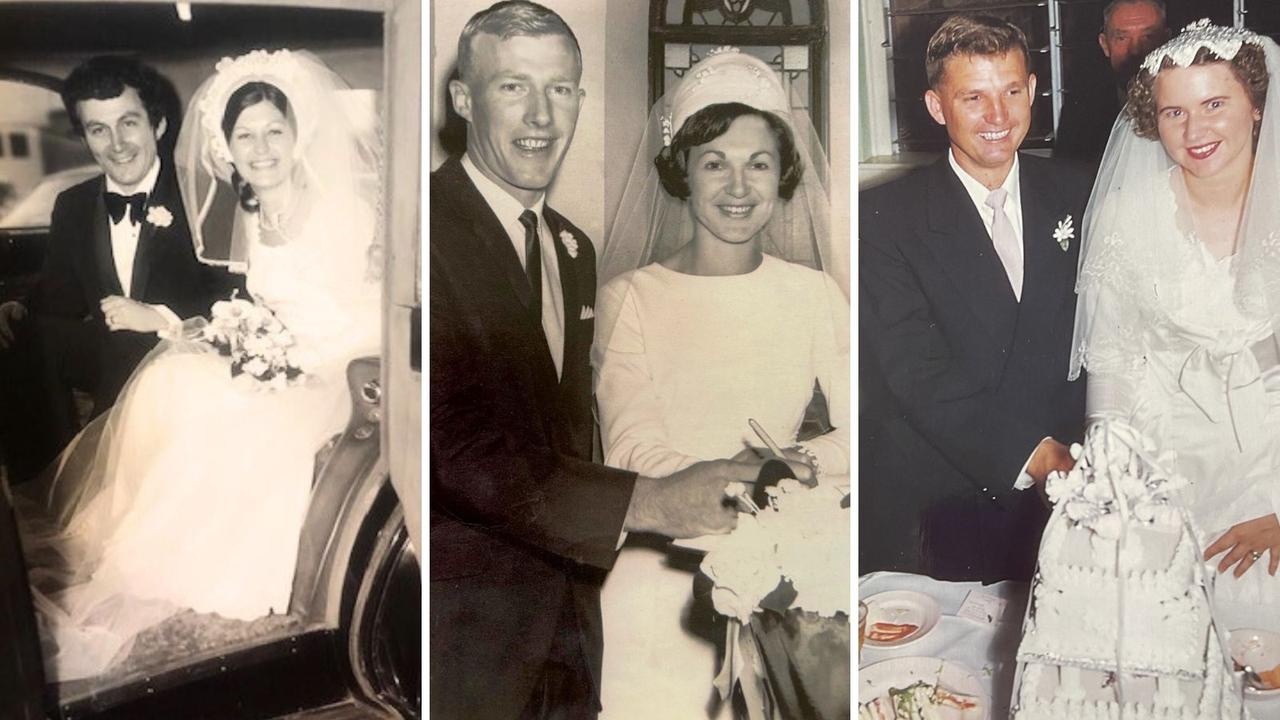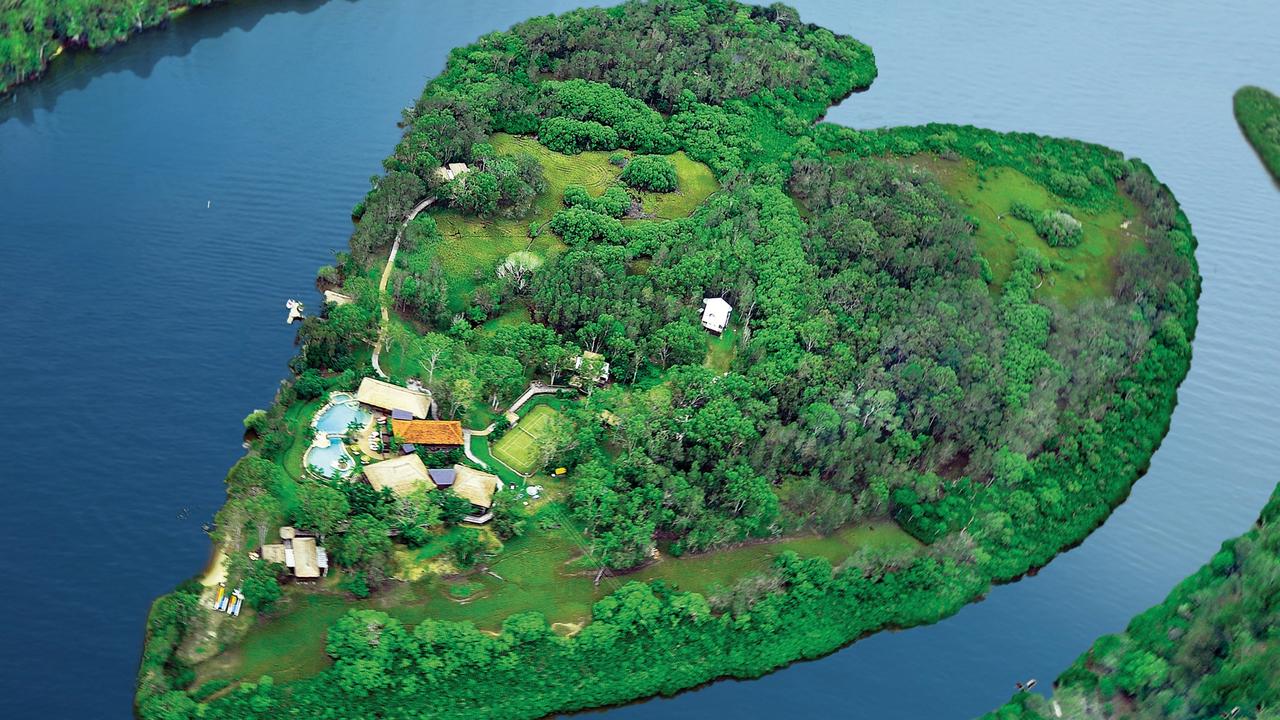Brink of death to dancing with a buzzcut: Inside Alexa Leary’s 111-day fightback from catastrophic crash
After her astonishing anchor leg to clinch Paralympics gold in the mixed medley relay, we revisit Frances Whiting's inspiring QWeekend feature on Alexa Leary's miracle 111-day fightback from death’s door after a horror crash.
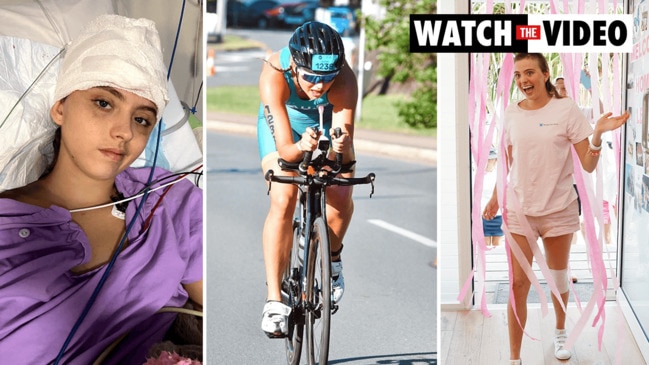
QWeekend
Don't miss out on the headlines from QWeekend. Followed categories will be added to My News.
Here comes Alexa Leary on her feet that always want to go faster than her legs will currently let her, her buzzcut with its “rat’s tail” at the back that her mother Belinda hates but Alexa won’t cut off because it’s all the hair she’s got right now, and her glorious smile.
“Thanks mum, I’m starving,” Alexa, 20, says to her mother in the kitchen of the family’s Noosaville home, then adds with a shrug: “I’m always starving,” before tucking into a green salad with her fork.
And the remarkable thing here (out of the many remarkable things that are taking place in this home close to the Noosa River) is that Alexa is using the fork at all, and with her right hand.
This is a QWeekend feature from December 2021. Read the latest on Alexa's stunning Paralympics gold medal here
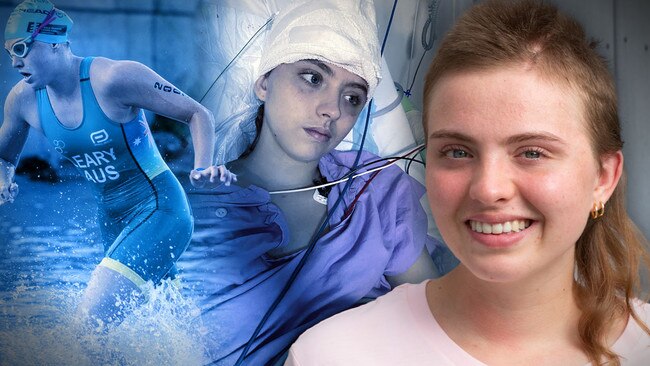
It wasn’t so long ago that Alexa, known as Lex by her family and the tens of thousands of followers on the Instagram page inspired by her, “Move For Lex”, couldn’t move her right hand at all. Or her right leg. Or recognise a fork. Or pick it up. Or walk. Or talk. Or swim. Or do any of the things that she is currently doing, or re-learning, or astounding her doctors with, as part of her long recovery from her catastrophic bicycle accident earlier this year.
Or, as Alexa herself describes it more succinctly, “I had a really bad stack”.
And it was a really – really – bad stack on July 17, after Alexa, a promising, elite triathlete who had won a silver medal at the Junior world triathlete titles in Switzerland in 2019, as well as numerous Queensland and Australian titles, set out with her father Russell on a morning training ride.

It would be 111 long days and nights before she came home again.
Today, sitting at the kitchen bench between Russell, 62, a holiday resort owner and manager, and Belinda, 52, Alexa listens carefully as her parents recount their recollections of that day. Every now and again she interjects to add her own snatches of memory, or to smile, nod, or (as young people are wont to do when their parents are talking) give a world class eye roll. She also tells them she loves them. Or leans over to kiss her mum on the cheek. Or to rest her head on her father’s shoulders. Or to go in for a full body hug.
Because the Alexa Leary story is, at its core, about love. And determination. And family. And an army of surgeons, doctors, nurses, physiotherapists and health care workers. And a little bit of dancing. But mostly love.
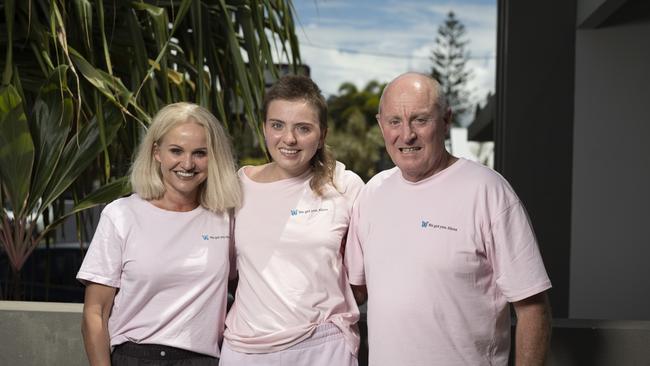
“We left pretty early in the morning,” Russell, who is also, along with Belinda, a keen rider, recalls.
“We were on a ride to Pomona (a small, rural, town at the base of Mt Cooroora, about 15 minutes inland from Noosa).
“I always follow behind Alexa’s team (Queensland Triathlon) and as I came over the hill an ambulance raced by me.
“I was about 15 minutes behind and when I got there Alexa was in the gutter, and it was just horrendous. There was blood everywhere, and at first I didn’t know it was her. I remember seeing her leg, her knee, just shattered, completely exposed … it was like a horror movie.”
On Pomona’s Louis Bazzo Drive, and riding at about 65km an hour, Alexa’s bike had clipped the wheel of the bike in front of her, sending her flying.
“Earlier in the morning she had been wearing a beanie under the helmet but as we rode had taken it off because it was getting hot. When she re-fastened her helmet, it wasn’t tightened enough, so that’s why her head took such an impact, it (the helmet) came off on the second and third hits so …”

So Alexa Leary, promising young triathlete, much-loved sibling to six brothers and sisters, girlfriend and best friend to local carpenter and footballer Wil O’Dwyer, personal trainer at Noosa’s F45 gymnasium, and Paris Olympics hopeful, lay in the gutter, broken.
She was unconscious, her head split open, her ribs and scapula broken, her lung punctured, her right leg shattered, its knee obliterated, most of her body covered in cuts and deep bruises, and her young life in the balance.
“Russell called me,” Belinda says, “and he said ‘Alexa has been hurt’, and I remember thinking ‘Oh, what is it this time?’ because we’re a pretty active family so there’s always someone with some sort of scrape.
“So I said, ‘just bring her home’ and he said, ‘no, she’s on her way in an ambulance to the Sunshine Coast Hospital, I’m on my way to get you so we can go to her’.
“When Russell came home, he could not stop shaking, and we did not speak a word the whole way there. I don’t know why, I think we knew there were no words for what we were going to have to face.
“When we got there, they told us she had to go immediately by helicopter to the Royal Brisbane (hospital) and I said, ‘I need to see her’.”
What followed is something that only other parents who have sat in a darkened hospital room, the one where they tell you in soft voices that your child most likely won’t make it, can possibly understand. The sucker punch of it, Russell says, “overwhelming”.

“We were told that if she made it, that she would never be the same again, that she had serious brain damage, and when we did see her, well I remember thinking how is anyone supposed to survive that?” he says.
Alexa was airlifted to The Royal Brisbane Women’s and Children’s Hospital’s Intensive Care Unit, where she would remain for the next 12 days.
The first night they spent in Brisbane, the Learys received a phone call from the hospital. “They said she was going, and that if we don’t remove (part of) the skull, she would die. So we agreed for Lex to have emergency surgery.”
The neurosurgeon on call at the RBWH that night, Dr Norman Ma, explains the necessity of such an operation: “The brain is like an apple in a box, it rolls around when it hits something traumatic, so you have bruising on different parts of the brain. It (the emergency surgery to remove part of the skull to relieve the pressure and swelling on Alexa’s brain) is really our last resort to preserve as much of the brain function as possible, and also prevent the brain from being further injured.”
For Alexa’s parents, the next two or three days following the surgery were spent waiting to see if their daughter would survive.

“Lex’s brain pressure kept going up and down and we just did not know if she would make it,” Russell says.
But Alexa, in an induced coma, did make it, and later, also survived a large blood clot that had formed in her neck which also needed emergency treatment, and later still, a fever that saw hospital staff use buckets of ice to try to reduce her soaring body temperature.
And all of this, as Covid lockdowns and isolation rules came into effect, meant she did much of it without her parents by her side.
“It was pretty brutal,” Belinda says, “because of Covid she had to be in isolation in the ICU but then, when it looked like she was not going to make it, they let us see her at times on compassionate grounds.”
For his part, Russell says there were moments during Alexa’s hospital stay when he “just couldn’t watch what was happening to her any longer”.
“There were two times when I just lost it,” Russell says.
“During the fever when the nurses were using buckets of ice to try to cool her down and she was just shaking so much I started yelling: ‘Can somebody do something’ at the top of my voice. Of course, later I apologised, but I couldn’t take it, the stress just got to me, and the other time was when her knee just burst open and the blood was spraying over the nurses like a hose.”
Russell shakes his head.
“Those nurses, the doctors, the surgeons, I don’t think I have words to describe what they do, they are the world’s best people.”
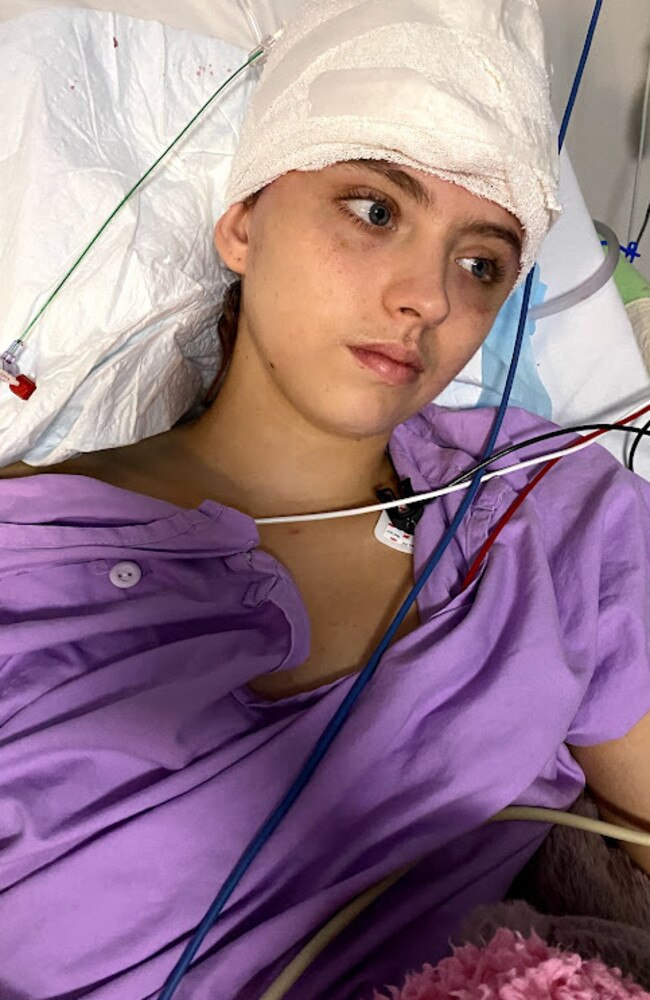
And here’s the thing about Alexa and her family: All of those who have witnessed their love and support of each other, and what they have chosen to do with the monetary donations which flooded the Move For Lex social media campaign, would say exactly the same thing about them.
Because while Alexa lay in ICU, and later, when she was able to leave it on July 29 to spend the next 10 weeks in the RBWH’s neurological ward, 8A South, the Learys weren’t just looking at their daughter.
They were looking around the ICU, and 8A South.
They were looking at the other people who lay there, the ones who received visitors and the ones who did not, the equipment that was needed, or needed to be upgraded, and they started to think about what they could do to help.
But first, they needed, Russell says, to get their girl home.
Alexa nods. “Oh I was soooo ready to come home,” she says. “But I had to wait a little bit longer.” She gives a spectacularly impressive eye roll at the memory.
On September 24, Alexa was deemed well enough to leave 8A South to attend the Brain Injury Rehabilitation Unit, known as BIRU at the Princess Alexandra Hospital in Woolloongabba.
By that stage she was talking, had regained some movement, recognised everyone who came to visit her, loved listening to her favourite songs, and perhaps most impressive of all, had kept her wicked sense of humour about all that happened to her.

There’s a video of Alexa in her hospital bed, head swollen and heavily shaved, arm bandaged, tubes connected to her limbs, and one very black and blue eye.
Turning to the camera, she says: “You should see the other guy.”
When she left for BIRU she was sent off by cheering RBWH staff members. As it was a specialist and intensive therapy unit for acquired brain injury patients, the Learys felt it was the right next step for Alexa, but Covid, along with BIRU’s strict policies on limited visitation so their patients can concentrate on their recovery, meant that she took most of those steps without her family beside her.
“It was hard leaving her,” Belinda says.
“So hard, but we were able to go home and be with our other children, who of course, were really needing us also.
“They love Lex so much so this was really hard on them too. But we’d call Lex on the phone and she never made it hard for us. She never said ‘where are you?’ or ‘why aren’t you here?’. She just told us about her day.”
Russell adds: “It was the right move, I think, because without her helicopter parents there buzzing around her, she became very determined to do things for herself.
“When she went in, she was in a wheelchair. When we went to pick her up, she came walking very confidently towards us.
“That was the golden moment for me, seeing her right arm and leg working.”
Lex, her parents laugh, came at them “like a bull at a gate” when she heard their voices in the BIRU corridor, everyone calling to her to slow down. Not much chance of that. Not when you’ve got a home in Noosaville and all those brothers and sisters, and a cocker spaniel called Harvey to get back to.

On November 4, Alexa Leary did go home to a front door festooned with photos and well wishes, and to the delight of her siblings – Ashtyn, 31, Jorja, 29, Madison, 27, Paige, 24, Max, 18 and Jack, 16 (the Learys are a blended family with both Belinda and Russell bringing children from previous unions into their marriage, before having Alexa, Max and Jack together). Also welcoming her home was her boyfriend of the past 2½ years, Wil.
“He’s an amazing young man,” Russell says, “he has just stuck by her side. For the first six weeks Lex was in hospital he used all his holiday leave to be with her. He has never wavered in his support of Lex.”
She also came home to a mountain of lasagnes left on the Leary doorstep, forests of flowers arriving every day, and a new challenge to aim for.
Alexa spends three hours a day, five days a week, at the Eden Private Hospital in nearby, rural Cooroy’s Rehabilitation Centre.
“It’s hard work,” she says, “but I have to do it.”
Eden is focusing on Alexa’s movement, as well as helping her strengthen her memory, which her parents say “is coming back stronger every day.”
So is her innate, athlete’s urge to compete.
“I’m starting swimming training on Monday,” she says. “I’m pretty determined.”
Does she get tired? Alexa shakes her head: “I’m not really a tired sort of person,” she says in what might be the understatement of the year.
The Leary clan, in general, are not “tired sort of people”. Neither are their friends, or the army of supporters behind “Move For Lex”.
Begun by a friend of Alexa’s sister Madison on the Gold Coast, it has grown into a fundraising phenomenon.
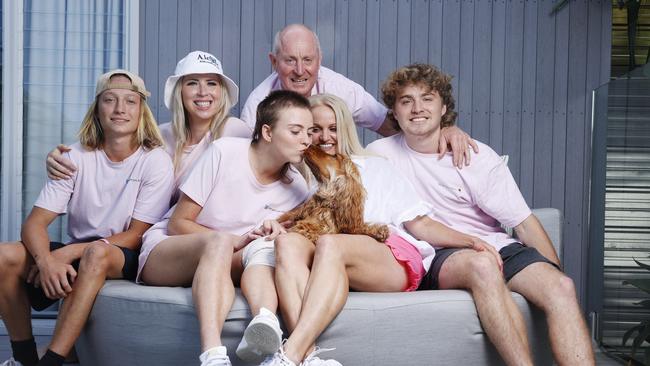
“A friend of Madison’s rang her not long after the accident and said ‘I can’t stop thinking about Lex in hospital, and how lucky I am to be able to exercise, so I had this idea to do an exercise-based fundraiser with the hashtag Move for Lex and just see if anyone gets involved’,” Belinda says.
So far, 135,000 (and growing) people have, including footballers like Johnathan Thurston, Olympic triathlete Ashleigh Gentle, and rock legend Jimmy Barnes, all of whom have popped up on the Move for Lex Instagram page to pledge their support.
The idea behind Move For Lex is a simple one – get moving for those people who can’t, and raise some money along the way.
So far, it’s raised more than $155,000 – and every single cent of it is going back to the RBWH.
“For us, it was never about the money,” Russell says, “but it is about now having a very real understanding about what people go through, how their lives can change in a split second, and how much help they need. We’re lucky, we have what we need as a family to help Alexa, but not everyone does.”
Working with the RBWH Foundation, the Leary family has created a program to support families with loved ones in the ICU. It’s simply called WeCU.
It will offer travel and accommodation allowances, as well as finance for refurbishing the ICU waiting rooms, and creating a concierge service offering social worker and other support for those with loved ones in the ICU. Money will also go to the neurosurgery ward for new equipment.

RBWH Foundation chief executive Simone Garske calls the Leary family “remarkable”.
“I am just so touched by their compassion. Despite going through extreme trauma themselves, Russell and Belinda were still able to look around and register the number of fellow patients facing that tough journey of recovery without the support of their own loved ones.
“Russell originally began sharing Lex’s flowers among all the other patients who often didn’t have anyone else visiting because their family couldn’t afford the travel expenses,” Garske says. “He kept saying people need love to heal and recover.”
And love is something Alexa Leary clearly has an abundance of.
“You know, Lex couldn’t walk, she couldn’t talk, she couldn’t communicate, and I remember someone saying to me ‘Oh you’re going to have to look after her for a long time’,” Belinda says.
“And I look at her now, she’s a little miracle. She’s walking, she’s talking, she’s communicating really well, her memory is coming back. She showers herself, she makes her bed, she dances when her favourite songs are playing, and she’s still the same girl. My girl. I don’t mind looking after her at all; there’s nothing else I’d rather do.”
And one of those favourite songs is Owl City’s Verge.
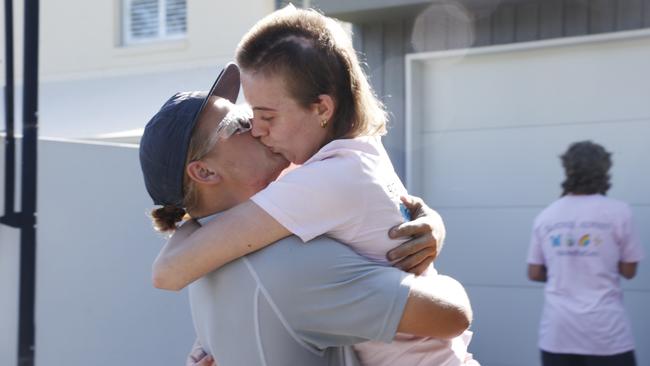
There’s a post of Alexa dancing to it on the Move For Lex Instagram page, both before her accident and after it. In the “before” video, she’s on her feet, in the “after’’ she’s in a chair in hospital, but in both she’s singing the lyrics with gusto: “From now on, there’s no looking back, full steam ahead, on a one way track.”
Here comes Alexa Leary on her feet that always want to go faster than her legs currently let her, her rat’s tail hairdo and her glorious smile. No looking back. Full steam ahead. On a one way track. Powered by love.



